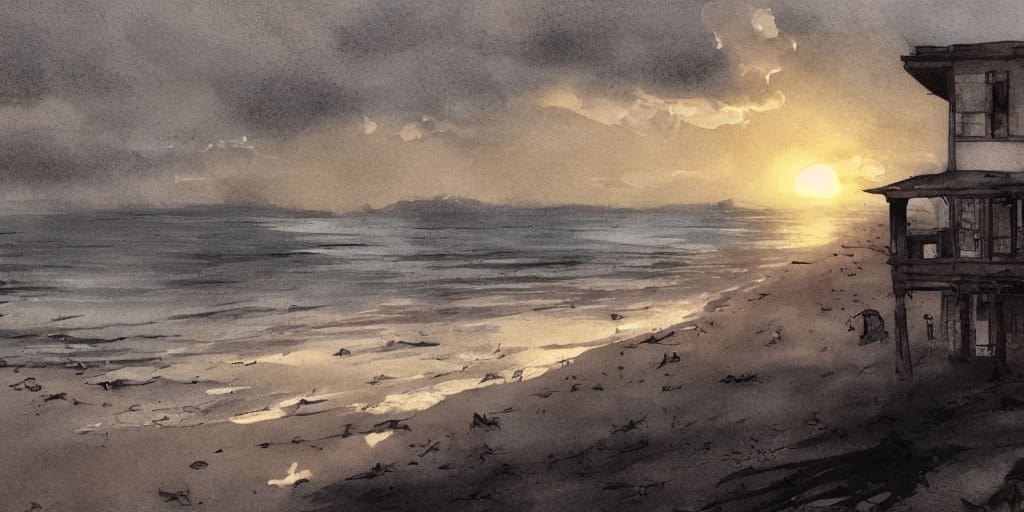John Pilger: Navigating the Depths of Truth
John Pilger: Truth-Telling in a Turbulent World
In the realm of journalism, the name John Pilger resonates as a testament to the enduring power of truth-telling in the face of adversity. Pilger, an Australian journalist, author and documentary maker carved a niche for himself through a career marked by global assignments, incisive written works, unapologetic political activism, and a legacy that challenges the status quo.
On the 30th December 2023 John Pilger passed away, in this piece, we embark on a journey through his life and contributions, exploring the formative years of his upbringing, his eye-opening assignments around the world, his impactful written works and documentaries, his unflinching political activism, and the lasting legacy he leaves on journalism and activism.

Table of Contents
The Roots of Maverick Journalist John Pilger
John Pilger’s early life in Sydney, Australia, laid the foundation for his future as a maverick journalist. Born on October 9, 1939, Pilger grew up in a working-class family, witnessing first-hand the socio-economic disparities that would later become a focal point in his reporting. The post-World War II era shaped his worldview, instilling in him a sense of curiosity about the complexities of global affairs.
Pilger’s upbringing in a society grappling with its own identity and the broader shifts in the geopolitical landscape fuelled his desire to question, investigate, and expose the truth. This early exposure to socio-economic inequality and injustice sowed the seeds for a journalism career dedicated to shedding light on the often unseen and overlooked aspects of the world.

A Journalist’s Odyssey
One of the defining features of Pilger’s career was his relentless pursuit of truth on a global scale. His assignments took him to some of the world’s most tumultuous regions, where he witnessed and reported on events that would shape the course of history. Notably, Pilger’s coverage of the Vietnam War and the Cambodian genocide provided a searing look into the human cost of conflict and political machinations.
In the Middle East, Pilger’s investigative reporting illuminated the complexities of the Israeli-Palestinian conflict, challenging prevailing narratives and giving voice to those silenced by geopolitical power dynamics. His commitment to on-the-ground reporting, coupled with a keen eye for the human story amid geopolitical chaos, distinguished Pilger as a journalist who refused to turn away from uncomfortable truths.
The Pen as a Weapon for Change
Beyond the lens of a camera, Pilger wielded the pen as a powerful instrument for change. His written works, including books and articles, delved into the heart of socio-political issues, providing readers with a nuanced understanding of the world’s complexities. “Hidden Agendas,” “Tell Me No Lies,” and “The New Rulers of the World” are just a few examples of Pilger’s works that combine meticulous research with a narrative style that captures the essence of the human experience.
Pilger’s written works go beyond mere documentation; they serve as a call to action, urging readers to question authority, challenge the status quo, and engage with the world critically. His ability to distil complex issues into accessible narratives demonstrates the power of storytelling as a means of fostering empathy and understanding among a global audience.
John Pilger the documentary maker
As well as Pilger’s renowned work in investigative journalism, he produced numerous documentaries that delve into critical global issues, shedding light on the often-overlooked aspects of conflicts, human rights abuses, and political machinations. Here are some notable examples of his documentaries:
The Quiet Mutiny (1970): In the midst of the Vietnam War, Pilger embedded himself with American troops to capture the internal struggles and disillusionment within the military ranks. The documentary exposes the gap between the rhetoric of government officials and the grim reality faced by soldiers on the ground. Pilger’s intimate interviews with soldiers reveal a profound sense of betrayal and moral questioning, making “The Quiet Mutiny” a poignant exploration of the human cost of war.
Year Zero: The Silent Death of Cambodia (1979): “Year Zero” stands as one of Pilger’s most powerful documentaries. Filmed in the immediate aftermath of the Khmer Rouge regime, Pilger captures the haunting landscapes and the devastated lives of the Cambodian people. Through interviews with survivors and former Khmer Rouge officials, the documentary unravels the atrocities committed during Pol Pot’s rule. Pilger provides a rare and chilling glimpse into a nation grappling with the aftermath of genocide, forcing viewers to confront the consequences of political ideologies gone awry.

War by Other Means (1992): This documentary delves into the less overt forms of warfare – economic and political strategies employed by powerful nations to exert control. Pilger explores the role of international financial institutions, such as the World Bank and the International Monetary Fund, in shaping the destinies of developing nations. Through interviews with experts and affected communities, he unveils the impact of globalization on the sovereignty and economic well-being of countries in the Global South. “War by Other Means” challenges viewers to rethink notions of power and examine the consequences of global economic policies.
Death of a Nation: The Timor Conspiracy (1994): Focusing on the brutal Indonesian invasion of East Timor, this documentary exposes the complicity of Western governments, especially the U.S. and the U.K., in supporting the Indonesian military regime. Pilger investigates the geopolitical motives behind this support and sheds light on the human rights abuses that occurred during the occupation. “Death of a Nation” contributes to the broader conversation about the ethics of international relations and the responsibilities of powerful nations in the face of atrocities.

Paying the Price: Killing the Children of Iraq (2000): In the aftermath of the Gulf War, Pilger turns his lens to the impact of economic sanctions on Iraq. The documentary provides a deeply human perspective, highlighting the suffering of Iraqi civilians, especially children, due to malnutrition and lack of medical resources. Pilger challenges the morality of using sanctions as a tool of foreign policy, questioning the price paid by innocent lives. “Paying the Price” contributes to the discourse on the ethical considerations of international interventions and sanctions.
These documentaries collectively form a body of work that transcend traditional journalism, offering audiences a visceral understanding of global issues. Pilger’s ability to humanize complex geopolitical situations, coupled with his unyielding commitment to truth, makes each documentary a powerful call to action, urging viewers to confront uncomfortable realities and question the narratives presented by those in power.
Political Activism: Crossing the Line or Necessary Advocacy?
Pilger’s commitment to truth-telling extended beyond the realm of journalism into the arena of political activism. Critics argue that a journalist’s primary responsibility is to maintain objectivity and neutrality, asserting that activism compromises the integrity of the profession. However, Pilger’s perspective challenges this conventional wisdom, positing that the pursuit of justice is an inherent part of the journalist’s duty.
Throughout his career, Pilger was a vocal critic of imperialism, war crimes, and human rights abuses. His advocacy for justice aligns with his belief that journalists have a moral obligation to confront power and champion the rights of the oppressed. While some may question the merging of journalism and activism, Pilger’s approach prompted a broader reflection on the role of media in holding power to account.
Legacy of John Pilger: Inspiring a New Generation of Truth-Seekers
As we now reflect on John Pilger’s career, one thing for certain is that his legacy will continue to loom large in the world of journalism and activism. His dedication to uncovering inconvenient truths and challenging established power structures has inspired a new generation of truth-seekers. Pilger’s legacy is not confined to the pages of history but lives on through the journalists he has influenced and the readers he has enlightened.
In an era where misinformation and propaganda proliferate, Pilger’s legacy serves as a beacon of journalistic integrity. The enduring relevance of his work underscores the importance of independent journalism that prioritizes truth over sensationalism. As we grapple with the complexities of the modern world, Pilger’s legacy challenges us to question, investigate, and resist complacency in the face of injustice.
Challenges and Solutions: Navigating the Future of Journalism
While celebrating John Pilger’s contributions, it is essential to confront the challenges facing journalism today. The digital age has transformed the media landscape, presenting both opportunities and threats to the kind of in-depth, investigative reporting that Pilger championed.
To ensure the spirit of Pilger’s journalism endures, media organizations must prioritize and support investigative reporting. This includes providing resources for journalists to pursue stories that hold power accountable, even when those in power may resist scrutiny. Additionally, initiatives that promote media literacy can empower the public to distinguish between credible journalism and misinformation, fostering a more informed and engaged society.
Pilger’s Odyssey of Truth in an Era of Uncertainty
In examining the life and contributions of John Pilger, we find an odyssey of truth that spans continents and decades. From his formative years in Australia to his global assignments, written works, documentaries and political activism, Pilger’s journey is one marked by an unwavering commitment to uncovering the truth, challenging power, and advocating for justice.
Reflecting on Pilger’s legacy, we must not merely celebrate the man but also internalize the lessons embedded in his life’s work. The world is in constant flux, and the need for fearless journalism that speaks truth to power has never been more urgent. In a digital age where information is both abundant and easily manipulated, Pilger’s legacy reminds us of the enduring power of journalism to shape narratives, inspire change, and hold the powerful accountable.
As we navigate an uncertain future, the spirit of John Pilger’s journalism beckons us to embrace the responsibility of truth-telling with courage and conviction. In doing so, we honour not just the legacy of a journalist but the enduring pursuit of a more just and informed world. John Pilger’s odyssey of truth leaves us with a challenge and an inspiration – to be vigilant, to question, and to champion the values that define the heart of journalism in the face of a turbulent world.
*All Book Images Open a New tab to our Bookshop
**If you buy books linked to our site, we get 10% commission from Bookshop.org, whose fees support independent bookshops.




























Leave a Comment